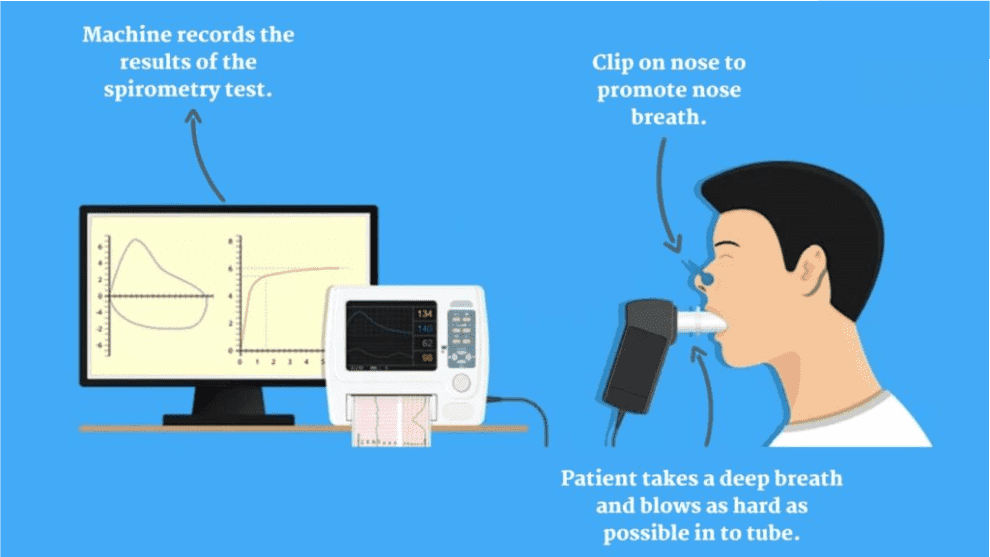Our Services


Pulmonary Function Test (PFT)
Pulmonary Function Tests (PFTs), also known as lung function tests, are a group of diagnostic tests used to evaluate how well your lungs are working. These tests provide valuable information about the volume and efficiency of your respiratory system and are crucial in diagnosing and managing various lung conditions. PFTs are typically conducted by healthcare professionals, including pulmonologists, to assess lung function and help determine appropriate treatments.
There are several common types of PFTs:
- Spirometry:
This test measures lung capacity and airflow, helping identify conditions like asthma and chronic obstructive pulmonary disease (COPD). It involves inhaling and exhaling into a machine to assess the volume and rate of air movement.
- Lung Volume Tests:
These tests determine the total lung capacity and residual volume, useful in diagnosing restrictive lung diseases like pulmonary fibrosis.
- Diffusion Capacity Test:
This assesses how effectively your lungs transfer oxygen from the air into your bloodstream, aiding in the diagnosis of conditions such as interstitial lung disease.

Treatment :
The treatment for lung conditions diagnosed through PFTs varies depending on the specific disease and its severity. Some common treatment approaches include:
- Medications:
Depending on the diagnosis, medications such as bronchodilators (for asthma and COPD), corticosteroids (for inflammation), and antibiotics (for lung infections) may be prescribed.
- Oxygen Therapy:
Patients with low oxygen levels may require supplemental oxygen therapy to improve their oxygen saturation.
- Pulmonary Rehabilitation:
This comprehensive program involves exercise, education, and support to improve lung function and overall well-being for individuals with chronic lung conditions.
- Lifestyle Modifications:
Smoking cessation, dietary changes, and maintaining a healthy weight are crucial for managing lung conditions.
- Surgical Interventions:
In some cases, surgery may be necessary, such as lung transplant for end-stage lung disease or surgery to remove tumors.
- Prevention:
Preventative measures like flu and pneumonia vaccinations can reduce the risk of respiratory infections, especially for individuals with compromised lung function.
It’s essential to work closely with a healthcare professional, typically a pulmonologist, to develop a personalized treatment plan based on the specific PFT results and the underlying lung condition. Regular follow-up and adherence to treatment recommendations are key to effectively managing pulmonary diseases and maintaining lung health.

Any Questions find here.
A pulmonologist is a medical specialist who focuses on diagnosing and treating diseases and conditions related to the respiratory system. You should consult a pulmonologist if you have persistent breathing problems, chronic cough, chest pain, or a lung-related illness.
During your first visit, you can expect a thorough evaluation of your medical history, a physical examination, and potentially additional tests. Our pulmonologist will discuss your symptoms and develop a personalized treatment plan.
Yes, we are accepting new patients. Contact us to schedule an appointment and start your journey to better lung health.
In most cases, a referral is not required to see a pulmonologist. You can schedule an appointment directly with our clinic.
Get in Touch
Dr. Bhatt Chest Center
Hasthinapuram Central, Laxmi Narashima Puram Colony, Hastinapuram, Hyderabad, Telangana - 500 074.
Clinic Timings
Mon - Sat : 6pm to 9pm
Sunday Closed

